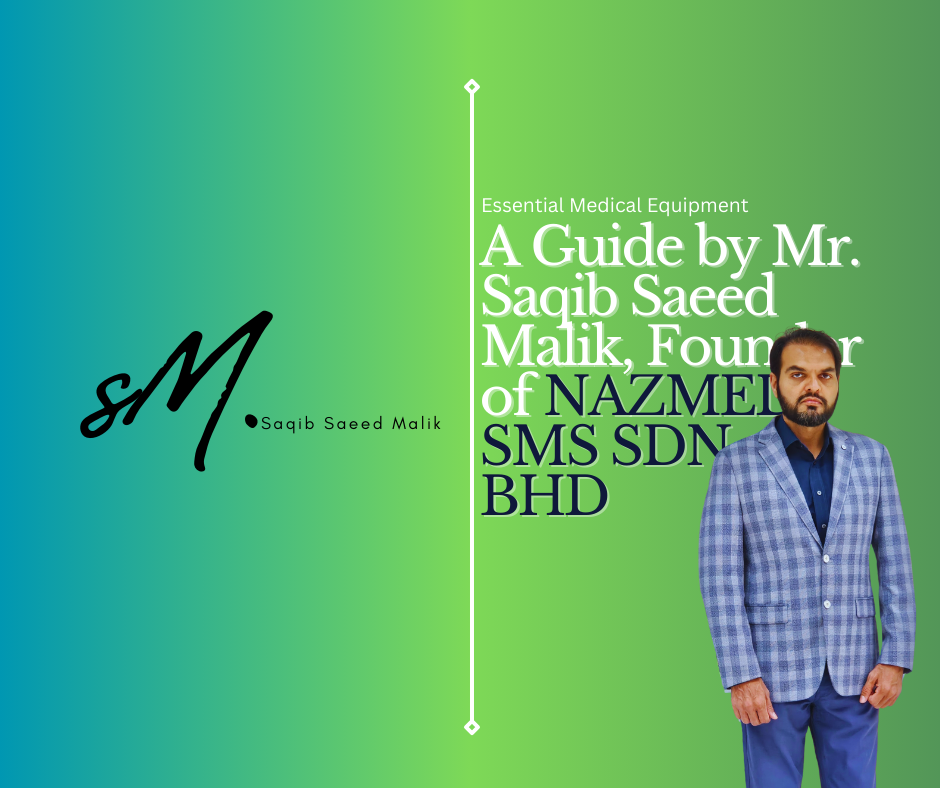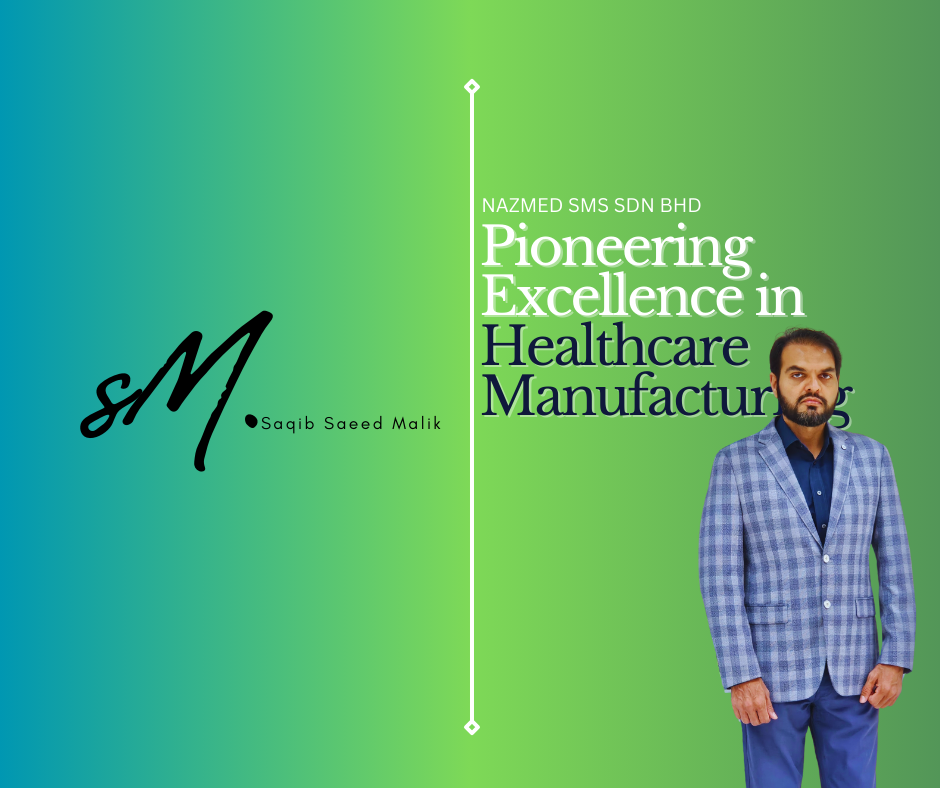In the ever-evolving landscape of healthcare, the availability of essential medical equipment is crucial for hospitals to provide quality care to patients. As the founder of NAZMED SMS SDN BHD, a leading manufacturer and distributor of medical instruments and equipment, Mr. Saqib Saeed Malik understands the importance of having the right tools at hand. Here are 10 pieces of medical equipment that all hospitals need to ensure efficient and effective patient care:
- Patient Monitors:
Patient monitors are essential for continuously monitoring vital signs such as heart rate, blood pressure, and oxygen saturation. These devices help healthcare providers quickly identify any changes in a patient’s condition and take appropriate action.
- Defibrillators:
Defibrillators are life-saving devices used to restore normal heart rhythm in patients experiencing cardiac arrest or certain arrhythmias. Having defibrillators readily available can significantly improve outcomes for patients in cardiac emergencies.
- Diagnostic Imaging Equipment:
Diagnostic imaging equipment such as X-ray machines, CT scanners, and MRI machines are essential for diagnosing and monitoring various medical conditions. These technologies allow healthcare providers to visualize internal structures and identify abnormalities for accurate diagnosis and treatment planning.
- Surgical Instruments:
Surgical instruments are indispensable for performing a wide range of surgical procedures, from minor surgeries to complex operations. Hospitals need a comprehensive set of surgical instruments, including scalpels, forceps, retractors, and scissors, to ensure successful surgical outcomes.
- Anesthesia Machines:
Anesthesia machines are essential for administering anesthesia to patients undergoing surgery or other medical procedures. These machines deliver precise doses of anesthesia gases and monitor the patient’s vital signs during anesthesia administration.
- Ventilators:
Ventilators are critical for providing respiratory support to patients with respiratory failure or difficulty breathing. These machines deliver oxygen to the lungs and remove carbon dioxide from the body, helping patients maintain adequate oxygenation and ventilation.
- Infusion Pumps:
Infusion pumps are used to deliver medications, fluids, and nutrients directly into a patient’s bloodstream at controlled rates. These devices ensure accurate medication delivery and help prevent medication errors.
- Sterilization Equipment:
Sterilization equipment such as autoclaves and sterilizers are essential for maintaining a sterile environment in hospitals and preventing the spread of infections. These devices effectively sterilize medical instruments and equipment before use in patient care.
- Laboratory Equipment:
Laboratory equipment such as centrifuges, microscopes, and analyzers are essential for conducting diagnostic tests and analyzing patient samples. These tools provide valuable information for diagnosing medical conditions and monitoring patient health.
- Patient Beds and Stretchers:
Patient beds and stretchers are fundamental for providing comfort and mobility to patients during their hospital stay. Hospitals need a sufficient number of beds and stretchers to accommodate patients and facilitate efficient patient flow throughout the facility.
In conclusion, the availability of essential medical equipment is paramount for hospitals to deliver high-quality patient care. By ensuring access to the right tools and technologies, hospitals can improve patient outcomes, enhance safety, and promote overall wellness. As the founder of NAZMED SMS SDN BHD, Mr. Saqib Saeed Malik remains committed to providing hospitals with the essential medical equipment they need to fulfill their mission of healing and saving lives.



